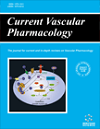
Full text loading...
The global COVID-19 vaccination campaign has significantly reduced severe illness and mortality; however, emerging evidence raises concerns regarding its potential cardiovascular effects, particularly myocardial infarction (MI).
This study investigates the relationship between COVID-19 vaccination and MI incidence among first-time MI patients in Saudi Arabia. Post-COVID-19 vaccination within six months post-vaccination accounted for potential confounding factors, such as pre-existing health conditions, age, and lifestyle. A total of 102 MI patients, with a male predominance of 60.8% and a significant correlation with middle age, were analysed. A+ blood group patients were the most prevalent (33.3%), followed by B+ (29.4%), while Rh-negative patients constituted only 7.8%. Elevated mean BNP (761.98 pg/ml), pulse rate (87.72 bpm), and systolic blood pressure (139.98 mmHg) indicated heightened cardiac stress (p < 0.01).
Significant elevations in AST (121.65 U/L) and ALT (133.63 U/L) levels suggested liver stress post-Covid-19 vaccination (p < 0.01). Males had higher AST, ALT, and bilirubin levels than females, with p-values of 0.02, 0.01, and 0.04, respectively, indicating hepatic differences. Elevated biomarkers like CK-MB (58.05 IU/L) and CPK (313.86 mcg/L) further affirmed significant myocardial damage post-vaccination (p < 0.05).
These findings suggest a link between vaccination and cardiovascular events and highlight the importance of considering individual health profiles in evaluating vaccine safety, cardiovascular health, and hepatic implications.

Article metrics loading...

Full text loading...
References


Data & Media loading...
Supplements

